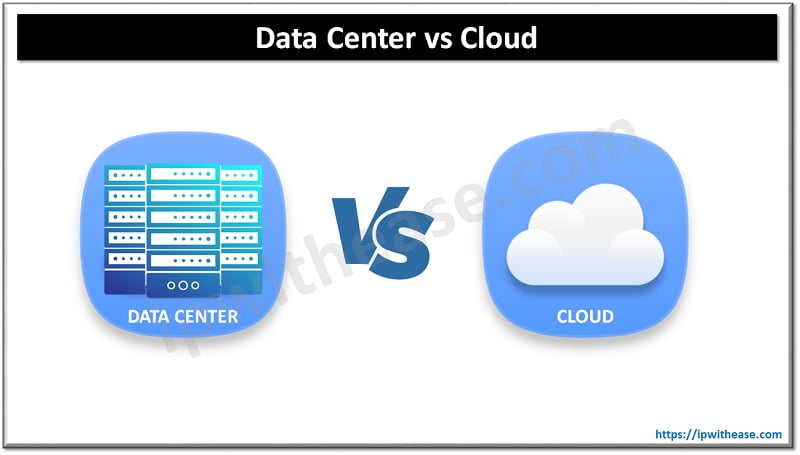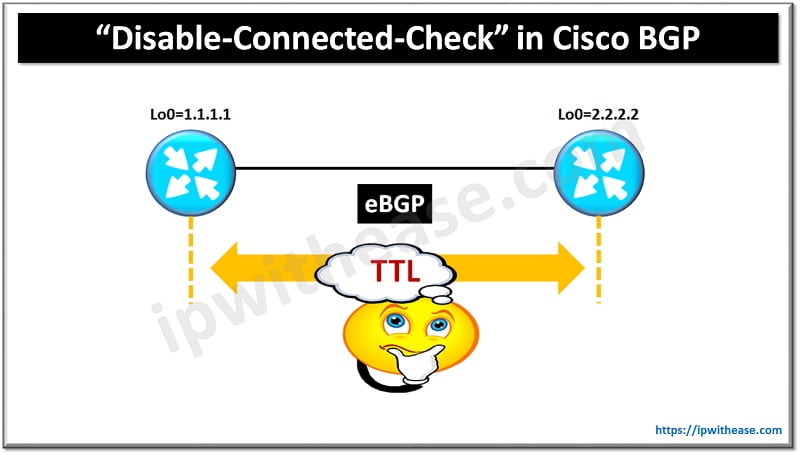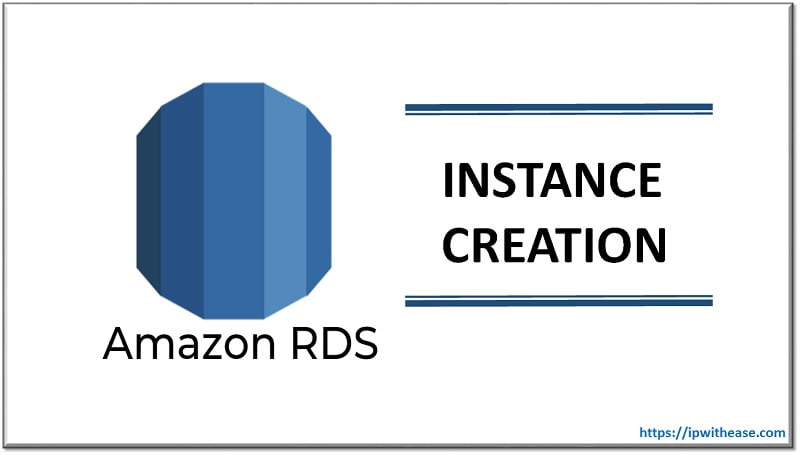Table of Contents
With technology evolving every day and new/improved IT services being offered to customers, it becomes confusing to know which service/offering is right for business compared to other. One such scenario is in case of service offering between VPN and Proxy. While both a proxy and VPN service have a lot of commonality amongst them, they differ significantly. You can source a VPN/Proxy Service from Service providers. This blog gives a detailed comparison of VPN vs Proxy.
What is a VPN?
A VPN, or virtual private network, is a service that creates a secure connection to another network over the internet. VPNs are used for a variety of reasons, including
- to gain remote access to networks,
- to connect networks with remote offices, and
- to create a secure network for employees working from home.
A VPN can be used to connect to your company network when you’re working remotely, to connect two networks that aren’t directly connected, or to keep your network secure.
VPN Benefits
The top benefits of using a VPN are privacy and security.
- When you use a reliable VPN to connect to the internet, your data is encrypted, making it much harder for third parties to monitor your activity or identify you.
- A VPN also gives you an IP address from another country, making it harder for authorities to track you down if you’re posting or downloading content that’s been banned in your country.
- If you travel or work remotely, VPNs can be helpful for accessing company networks from outside their offices. And if you’re using public Wi-Fi, using a VPN can help protect your data and privacy as well.
- VPNs can also be helpful for accessing websites that are blocked in certain countries.
VPN Drawback
VPNs are widely used and widely effective, but there are some drawbacks:
- VPNs can slow your internet connection down. This is especially noticeable when you’re watching videos, but it can have an effect on all types of connections. This is because all of your internet traffic is being routed through the VPN server.
- Some VPN providers don’t have the infrastructure to handle their service’s increased traffic in times of high demand. This often results in overloaded servers and long wait times.
- Another problem with VPNs is that not all of them are created equally. There are many cheap VPN services that offer poor security and don’t respect your privacy. In fact, some of these services log your data, which means that they can track your internet activity and see what you’re doing online. Avoid these VPNs at all costs and opt for one that respects your privacy and offers solid security.
What is a Proxy?
A proxy server is a computer that acts as an intermediary for requests from clients seeking resources from other servers. Proxies are often used to block malicious websites or to shield a computer from malicious websites by filtering the traffic to and from it.
You can also use a proxy to change your IP address to another location, enabling you to access region-locked websites and services.
Proxy Benefits
- Proxy servers are very useful for bypassing censorship and geo-blocking. If you need to access a blocked website, such as a streaming service or social network, or if you need to change your IP address to another location, a proxy can be very helpful. If a website or service has been blocked by your school or workplace, you can use a proxy server to access it.
- Proxy servers are also useful for protecting your privacy and security. They can hide your IP address, which means that it’s harder for third parties to track you, identify you, or hack your devices. Although it’s not as secure as a VPN, a VPN connection is slower, which makes it harder for hackers to break into your computer and steal your data.
Proxy Drawbacks
- The disadvantage of using a proxy is that since it can be used for accessing blocked websites, it can also be used for accessing malicious websites.
- Also, since you are using someone else’s computer, your IP address is likely to be the IP address of the owner of the proxy server, which can be traced and used to find out your location and identity.
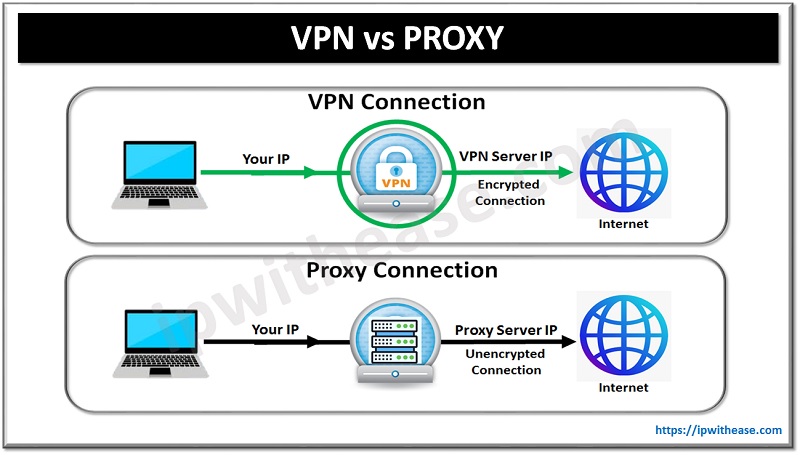
How to choose between VPN and Proxy?
The difficulty of choosing between VPN and Proxy comes from their overlapping functionality. With VPN and Proxy, you can browse the internet privately and securely from anywhere. And both VPN and Proxy can be used to bypass geo-blocking and censorship. So how to choose between VPN and Proxy? Let’s take a look at the most important features.
- Privacy and Security: A VPN will provide you with an encrypted connection between your computer and a server. While using a Proxy server, you need to install a software on your computer. So it gives you a little more control over your computer’s internet connection compared to a VPN.
- Speed: VPN will slow down your internet speed a little bit, whereas Proxy is less likely to have that effect.
- Ease of Use: Proxy is a software application you have to install on your computer. A VPN is often much easier to use and can be used on almost any device.
- Cost: A VPN is more expensive than a Proxy because it requires you to sign up for a subscription. But the investment is worth it. A Proxy will only cost you a one-time fee.
Comparison: VPN vs Proxy
Similarities
- The main purpose of using both proxies and VPN services is to hide the IP Address of the users or to prevent tracking bodies and individuals from identifying their location
- Both Proxy and VPN connect to remote system for communication and also both forward traffic on behalf of a client.
Differences
Below table enlists the dissimilarities between both VPN and Proxy: 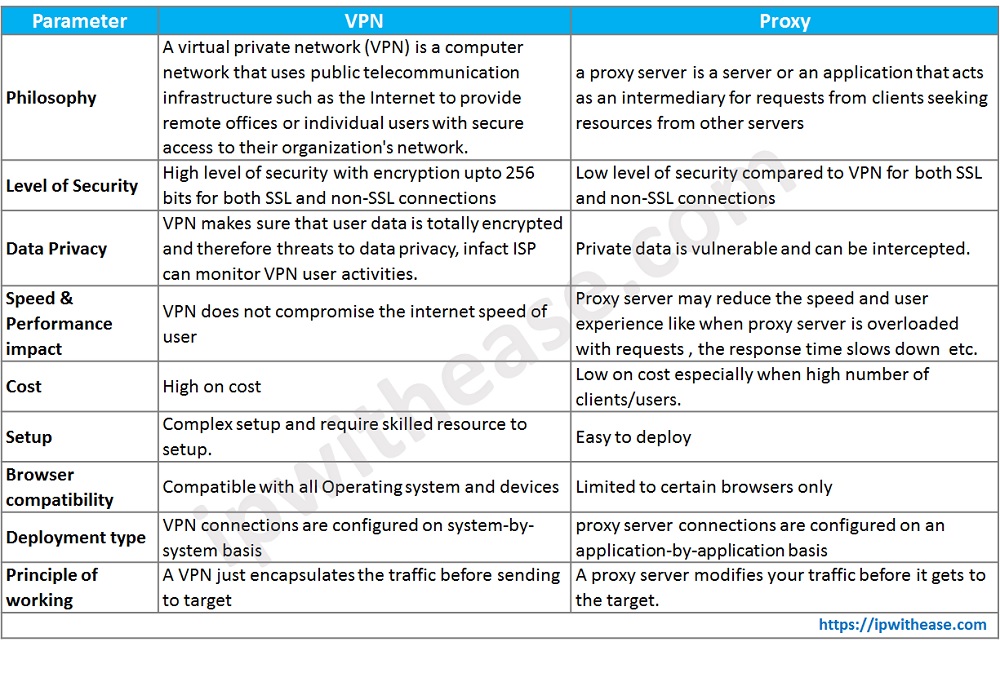
Download the comparison table: VPN vs PROXY
Final Words
VPNs and proxies are both helpful tools for improving your online security and privacy, but they serve different purposes and have different advantages and disadvantages. If you need to access a blocked website or change your IP address, a proxy can be helpful, but otherwise, it’s better to use a VPN. Remember, when you’re online, your privacy and security are always at risk. Using a VPN or proxy can help protect you from unwanted surveillance and hacking attempts.
Continue Reading:
Layer 2 vs Layer 3 VPN – Know the Difference
Forward Proxy vs Reverse Proxy: Understand the difference
ABOUT THE AUTHOR

I am here to share my knowledge and experience in the field of networking with the goal being – “The more you share, the more you learn.”
I am a biotechnologist by qualification and a Network Enthusiast by interest. I developed interest in networking being in the company of a passionate Network Professional, my husband.
I am a strong believer of the fact that “learning is a constant process of discovering yourself.”
– Rashmi Bhardwaj (Author/Editor)

